Not only does Apple's bestselling iPhone engender strong loyalty among those who buy it, but a new study says that the device attracts buyers from rival platforms faster than it loses to them.
Both Apple and Samsung — the two leading companies in terms of smartphone sales and profits — enjoy strong brand loyalty from consumers, according to a new report from Consumer Intelligence Research Partners. Apple, though, has been particularly successful in luring users away from the Android mobile operating system to its own iOS platform.
Fully 20 percent of iPhone buyers between July 2012 and June 2013 had previously owned an Android-powered device, according to CIRP. Twenty-six percent of iPhone buyers were updating to Apple's phone from a basic or feature phone, while 43 percent had already owned an Apple phone and were upgrading.
On the other end, though, only seven percent of Samsung phone buyers were switching from Apple devices. Samsung, by far the largest player in the Android smartphone market, drew 39 percent of its buyers over the year from basic upgraders.
Looking only at customers who had switched brands, fully one third of Apple's new customers had previously owned Samsung devices. Only 11 percent of Samsung's customers came from Apple.
Instead of drawing from its chief rival, Samsung appears to be pulling in customers from other manufacturers, including its fellow Android handset makers. HTC and Motorola in particular suffered from Samsung's growing sway in the smartphone segment. Finnish smartphone maker Nokia — which has struggled continually to find a niche in the new mobile market — also lost share to Samsung.
The study also found that Apple buyers tended to buy their devices at Apple's retail outlets, as opposed to other locations. Apple Stores accounted for nearly one-quarter of total sales for the Cupertino company. While strong, that is still below what Apple CEO Tim Cook has previously stated as a goal for in-store iPhone sales.
Samsung buyers, meanwhile, tend to get their devices from mass merchants and warehouse clubs such as Walmart, Target, and Costco. Best Buy provides similar sales levels for both manufacturers, but Samsung also sees stronger sales from online outlets than Apple does.
The study also found that buyers of Apple devices tended to have higher overall incomes than Samsung buyers. More than 60 percent of Apple buyers had incomes between $50,000 and $150,000 per year, compared to roughly 50 percent in the same range for Samsung.
 Kevin Bostic
Kevin Bostic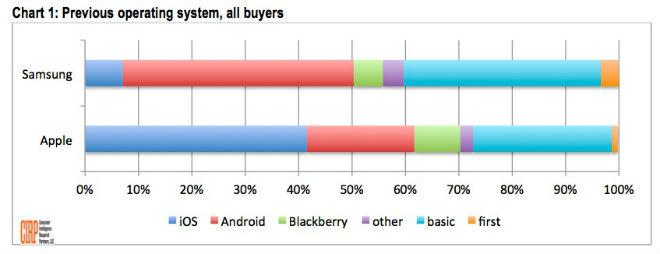
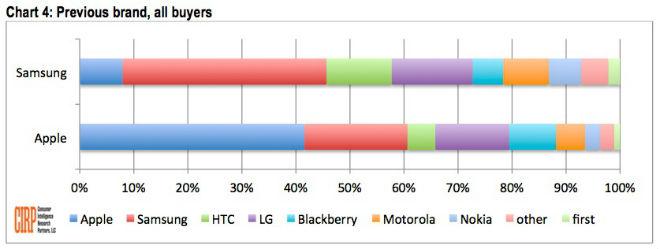
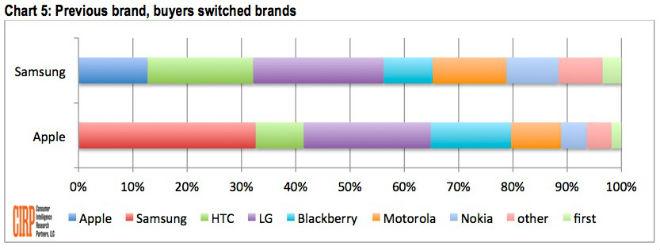
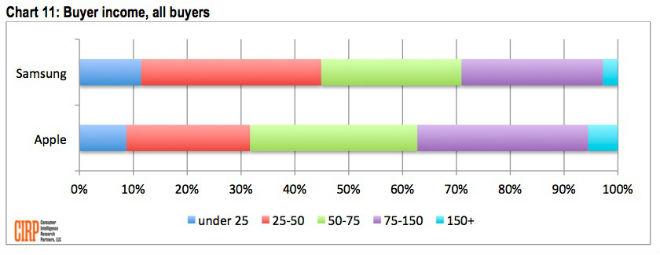







-m.jpg)






 Malcolm Owen
Malcolm Owen
 Amber Neely
Amber Neely


 Christine McKee
Christine McKee

 Chip Loder
Chip Loder
 Marko Zivkovic
Marko Zivkovic

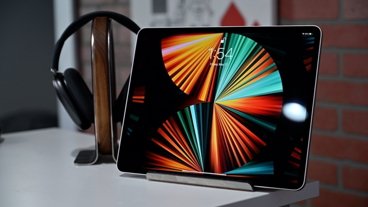







96 Comments
Apple is the only phone that runs iOS, Samsung is one of very many that runs android. These charts seem kind of pointless.
Doesn't the conclusion that apple gains more from android than it loses to samsung ignore the actual market numbers? Maybe samsung only has 7% of buyers switching from iPhone, but if it has 3X as many buyers as the iPhone does, then its 7% is greater than the iphone's 20% coming from android.
Smart!
Those 11% of Sammy's noobs must wanted NFC or humongous screens. What about the 20% of Apple newbies? So is Apple really losing customers because of the "small" screen? Then again, are the Sammy numbers for ALL android phones or just Android smartphones?
#android #winning #/s